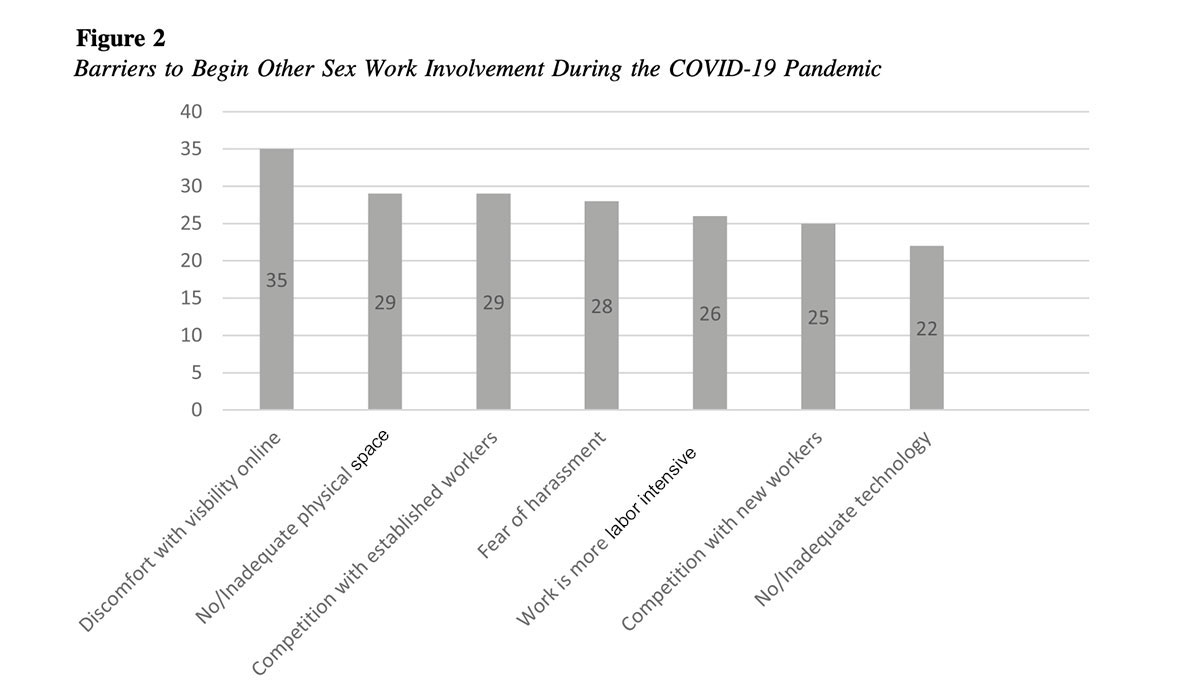Stripping is not a criminalized profession, but it does take place in the back rooms of society. Like other bar and restaurant workers, erotic dancers and other strip club employees found themselves out of work in March 2020 when COVID-19 shut down the service industry. Many were unable to access federal financial assistance due to a combination of occupational stigma and the private-contractor or under-the-table employment structure used by many clubs.
On top of these structural barriers to proving loss of income, strip club workers were barred from Paycheck Protection Program relief. Employers could not apply for COVID-19 small business relief loans if they operated a business of a “sexual nature.”
A study led by Katherine Kelton surveyed 102 strip club dancers in 35 states and Puerto Rico to see how COVID-19 affected their livelihood. More than half the participants reported losing 50% or more of their income after the pandemic hit. Forty-four percent reported seeking new forms of work within the sex industry, such as performing online and escorting.
The strip club dancers who chose not to seek other work in the adult entertainment industry cited multiple barriers. The bar graph shows the top deterrents given by 57 dancers in the study. Discomfort with online visibility was the most frequently reported reason for not engaging in online stripping or sex work. The permanence of online recordings threatens loss of privacy that can mar future transitions to more mainstream professions. In addition, workers who did not have the technology access or space to perform could not easily transform their work to an online platform. Respondents also cited concerns about competition with other workers in the over-saturated online market and fear of harassment or discrimination from a wider virtual audience outside of the club.
People who work in a legal $7.4 billion industry were denied essential financial relief simply because the work was associated with sex. Why should a legal occupation have been barred from receiving aid?
Databyte via Katherine Kelton, Taylor R. Greif, Maria Meinerding, Noel Elrod, Richard D. Harvey. Discrimination and financial, occupational, and emotional well-being in strip club dancers during the COVID-19 pandemic: A call for policy reform. Stigma and Health, 2022.
Note: This is a part of a series this month examining how the criminalization and stigma of sex work affects workers in various sectors of the sex industry.














